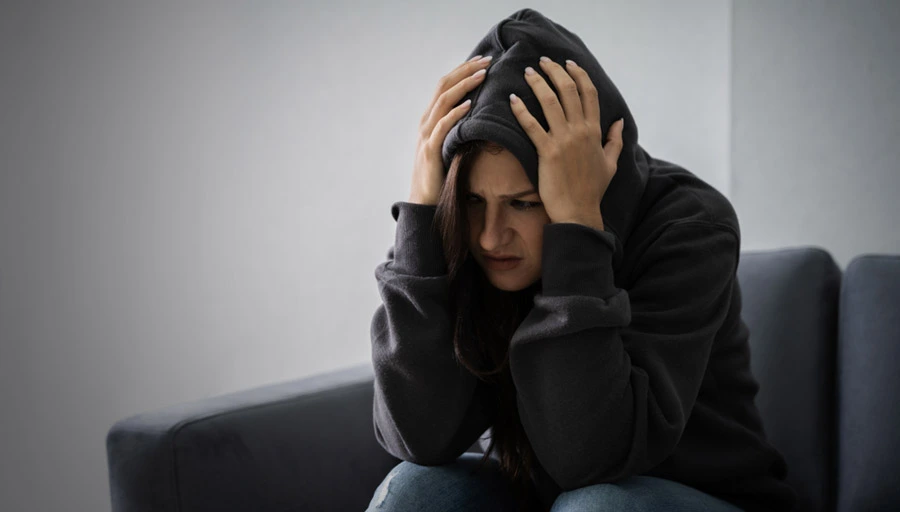Reflections to Better Prevent Relapse and Reduce Cravings
One of the most important parts of recovery is the creation of a solid relapse prevention plan. After all the hard work you put into drug and alcohol addiction treatment, the last thing you want to do is fall back into the trap of drug abuse and drinking.
That said, many times in life, even the strongest people – despite their best efforts, slip back into drug or alcohol use – even if only for a span of days. While it’s important to remember not to beat yourself up if you experience a relapse into drug abuse, that still doesn’t give you the green light to party every once in a while. It’s vital you make a conscious effort each day to stick to your relapse prevention plan and stay active in your addiction recovery.
In the important part of this article, we highlight the most frequently asked relapse prevention questions, including how to prepare yourself for success, and what to do if you hit a roadblock.
Keep reading to find out more about the analysis and reflections needed for proper prevention of relapse each day, and how Catalina Behavioral Health can help if you or a loved one are struggling.
Get Help Following Relapse at Catalina Today!
Getting Answers to Relapse Prevention Questions
Relapse prevention is a proactive approach to safeguarding your recovery journey from substance abuse – most commonly in the context of a post-addiction treatment setting.
Effective planning involves strategies, techniques, and coping mechanisms designed to identify triggers, maintain mental health, manage cravings, and prevent a return to addictive behaviors.
Why is a Relapse Prevention Plan Important?
Relapse is a common challenge in addiction recovery. Relapse prevention strengthens your mental health and equips you with tools to anticipate and manage high-risk situations, effectively navigate stressors, avoid situations, and maintain a healthy and sustainable lifestyle.
Triggers, Warning Signs, and Coping Mechanisms

What Are Common Triggers for Relapse?
Triggers can vary from person to person but often include stress, exposure to the substance, social situations, negative emotions, and even certain places or memories associated with substance or alcohol abuse.
Most people have a mental relapse before a physical relapse. Mental relapse refers to version is the thought of using before actually engaging in the physical act of drug or alcohol use.
Working with our therapists and counselors can help you identify your personal triggers. Self-reflection, journaling, and open communication with a support team can also aid in recognizing triggers.
What are the Biggest Triggers for Relapse?
Triggers for relapse can vary widely from person to person. Common triggers include stress, exposure to the substance or environment associated with it, negative emotions, social pressure, isolation, and complacency in recovery.
Identifying and understanding your specific triggers is a crucial step in relapse prevention.
What Are Effective Coping Strategies?
Coping strategies include deep breathing exercises, mindfulness techniques, engaging in physical activity, practicing healthy communication, and seeking social support.
Developing a toolkit of coping skills allows you to manage cravings and stressors effectively, ensuring you’re ready if substance use attempts to put its hooks back in you.
Relapse Prevention Questions: Dealing With Pitfalls

Is Relapse a Sign of Failure?
No, relapse is not a sign of failure. It’s an opportunity for growth and learning. Many individuals experience setbacks on their recovery journey. The key is to seek help, re-evaluate your strategies, and continue moving forward.
How Can I Stay Motivated in Relapse Prevention?
Setting realistic goals, celebrating milestones, and visualizing your success can help you stay motivated. Surrounding yourself with a supportive community and focusing on the positive changes you’ve made can also bolster your motivation.
What Role Does Support Play in Relapse Prevention?
A strong support network is essential. Surrounding yourself with understanding friends, family, or support groups provides encouragement, accountability, and a safe space to share challenges and successes, and be open about any emotional pain you’re dealing with from a mental illness or otherwise.
Can Professional Help Enhance Relapse Prevention?
Absolutely. Seeking guidance from addiction counselors, therapists, or medical professionals at our treatment facility can provide you with tailored strategies, insights, and guidance to effectively navigate the challenges of relapse prevention.
How Can I Bounce Back After a Relapse?
If a relapse occurs, it’s crucial not to lose hope. Reach out for help immediately, whether it’s from our caring team at Catalina, your own therapist, support group, or loved ones.
Focus on learning from the experience, adjusting your relapse prevention plan, and recommitting to your recovery goals.
More Relapse Prevention Questions to Help You Remain Sober

If I Relapse on Opioids, Will I Go Through Detox and Withdrawal Again?
Yes, a relapse involving opioids can lead to physical dependence and withdrawal symptoms over a relatively short amount of time. Opioids, such drugs as heroin or prescription painkillers, have the potential to quickly re-establish physical addiction deep into the recovery process.
It’s essential to seek medical attention if a relapse occurs to manage withdrawal and avoid further complications.
Is Relapse a Common Part of Recovery?
Relapse is one of the most significant pitfalls with the highest potential for negative consequences for those seeking long-term sobriety. While it’s not inevitable, it is relatively common. It’s important to remember and recognize that relapse doesn’t mean you’ve failed.
If anything, it demonstrates your ability to press forward in the face of adversity.
How Often Do Most Addicts in Recovery Experience a Relapse?
The frequency of relapse varies widely and is influenced by factors such as the type of addiction, your support system or recovery circle, the effectiveness of coping strategies, and their commitment to recovery.
Some individuals may experience multiple relapses before achieving sustained sobriety, while others may avoid relapse entirely. At Catalina Behavioral Health, we have seen that even in the cases of clients with severe chronic relapse histories, recovery is possible.
What Should I Do If I Feel Like I Want to Relapse?

If you find yourself struggling with the urge to relapse, remember that help and support are available. Here’s what you can do:
- Reach Out: Contact your support network, such as a therapist, counselor, sponsor, or a trusted friend or family member. Expressing your feelings can provide immediate relief.
- Use Coping Strategies: Employ healthy coping mechanisms, such as deep breathing exercises, mindfulness, physical activity, or engaging in a creative outlet.
- Distract Yourself: Shift your focus to a positive and engaging activity that can take your mind off the urge to relapse. Practice self-care as a positive distraction from your stressors.
- Seek Professional Help: If the urge to relapse is overwhelming, seek guidance from our medical professional or addiction specialists at Catalina. We can offer guidance, adjust your treatment plan details, or provide necessary interventions.
- Attend a Meeting: If you’re part of a support group like SMART Recovery or a 12-step program such as AA or NA, attend a meeting for encouragement and accountability.
When Can I Stop Worrying About a Relapse?
Worrying about relapse is a common concern, especially in the early stages of recovery. As time goes on and you consistently engage in healthy coping mechanisms, develop a strong support network, and implement relapse prevention strategies, your confidence in maintaining sobriety will likely grow.
However, it’s important to remain vigilant and proactive in managing triggers and stressors, as the risk of relapse can persist even after years of recovery.
Does Slipping Up on a Different Substance Count as a Relapse?
A slip-up involving a substance other than drugs or alcohol than your primary drug of choice is a complex situation. While it may not be a ‘full’ relapse, it is still very much a cause for concern. It indicates vulnerability and suggests that your recovery may be at risk.
It is crucial to address this situation promptly by seeking support, assessing your triggers, and evaluating how proactive you’ve been in your recovery.
If you’ve noticed yourself falling away from the good habits you established after treatment, this situation could be a cause for alarm. And actually ingesting a substance with the hopes that it will alter your mood or mind is a definite and dramatic warning sign.
Do I Always Have to Return to Treatment After a Relapse?

The need to return for addiction treatment after a relapse depends on several factors, including the severity of the relapse, your overall progress in recovery, and your support system. A minor slip may not necessitate a return to treatment, but a more significant relapse could indicate a need for a meeting with your treatment specialist to adjust your plan.
Remember, positive outcomes after substance abuse treatment are contingent on the following:
- Continue practicing self-care
- Seek personal growth
- Be completely honest with yourself and support group
- Set healthy boundaries between yourself and old friends
- Continue to build new, healthy thought patterns
Get Accredited Treatment Options at Catalina!
Get Grounded in Recovery and Prevent Relapse at Catalina
Remember, relapse prevention is a dynamic and ongoing process. It requires self-awareness, resilience, and a commitment to your well-being. By understanding the principles of relapse prevention and seeking support, you can empower yourself to overcome challenges and pave the way for a healthier, happier, and addiction-free life.
At Catalina, we are here to support recovery and prepare our clients with effective skills to prevent relapse, as well as offer our services to those who have slipped and need additional support. Our Tucson-based treatment center accepts many types of AHCCCS plans, as well as many forms of private health insurance for all levels of care.
Our highly compassionate staff is waiting to help guide you through our admissions process. Don’t postpone your recovery any longer and call us today for support!




